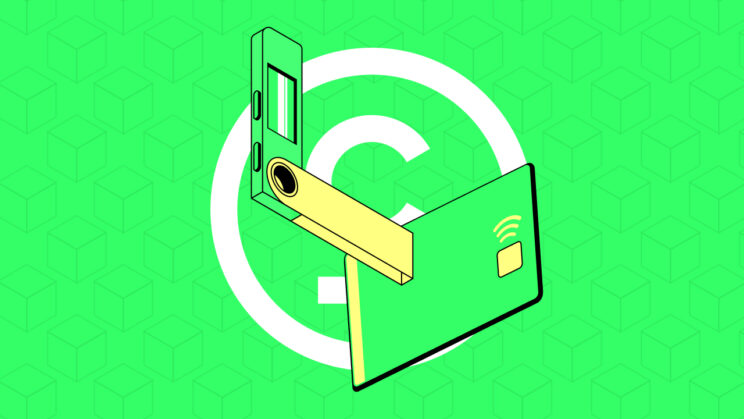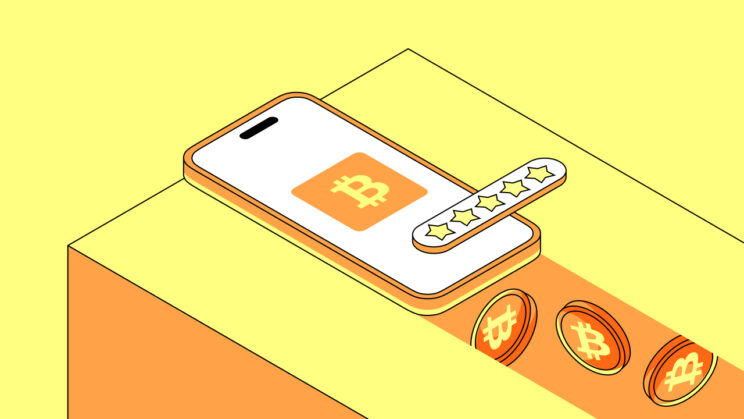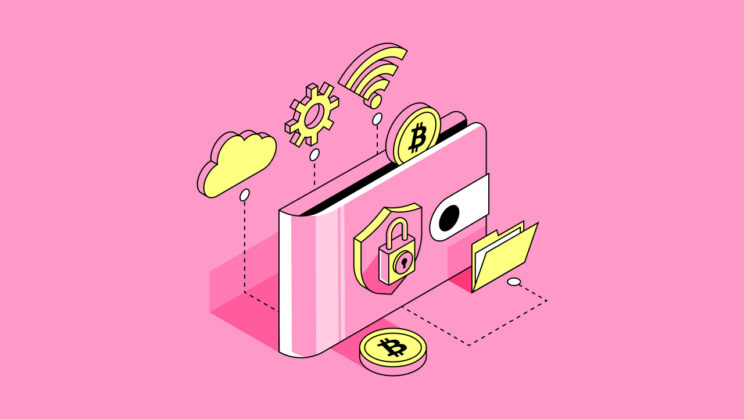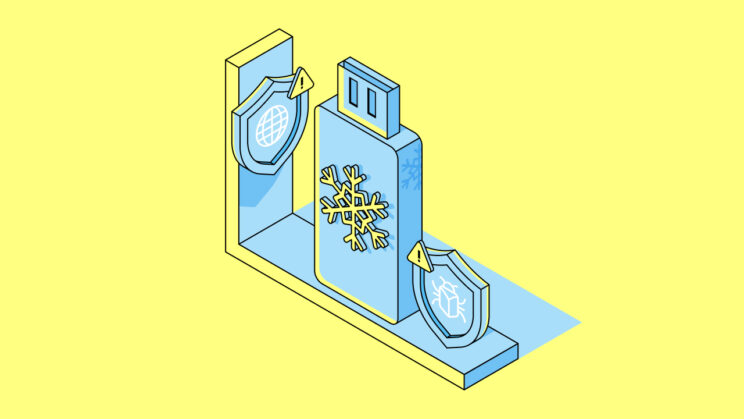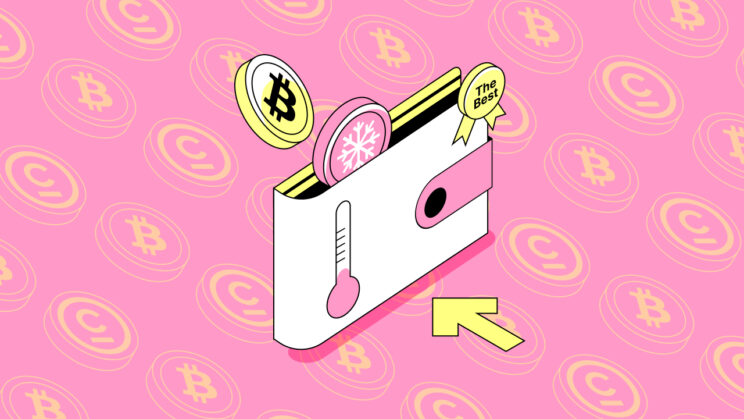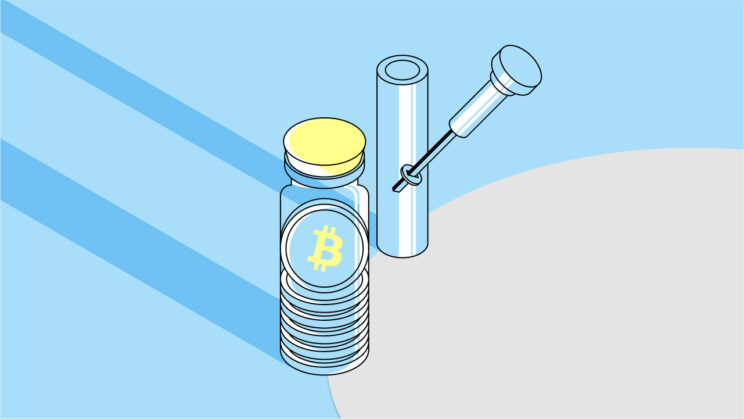Difference between Custodial and Non-Custodial Wallets
When it comes to managing your cryptocurrencies, understanding the differences between custodial and non-custodial wallets is crucial. Custodial wallets, offered by exchanges and third-party providers, store your private keys on your behalf, providing convenience but sacrificing some control. On the other hand, non-custodial wallets put you in full control of your private keys, enhancing security but requiring you to take on the responsibility of safeguarding your funds. Explore the article to gain a deeper understanding of the trade-offs, privacy implications, and factors to consider when choosing the right wallet for your cryptocurrency journey. Unveil the secrets and make an informed decision to protect your digital assets effectively.
What is a Custodial Wallet
Custodial wallets gained immense popularity in the world of cryptocurrency exchanges. These wallets are a specific type of crypto wallet that enables users to carry out various storage and transfer functions. When we say “custodial,” it means that a third party holds the private keys. As a result, users do not have full control over their funds and cannot authorize transactions. It’s important to note that using a custodial wallet requires undergoing a KYC procedure to verify your identity.
Early on in the existence of Bitcoin, a significant challenge arose regarding wallet access. Initially, users were responsible for creating and managing their wallets. However, many encountered difficulties when they lost their seed phrases and private keys, preventing them from accessing their wallets. This issue was resolved by entrusting the custodian, which is typically an exchange platform, with the users’ keys.
If you ever find yourself locked out of your account or unable to recall your password on a crypto exchange, you can rely on their internal support to resolve the problem. This is in contrast to non-custodial wallets, where losing access can result in permanent loss of funds. Therefore, choosing a reputable crypto exchange is crucial. Factors to consider include its popularity, security measures, regulatory compliance, and available services.
What is a Non-Custodial Wallet
In a non-custodial wallet, you have complete control and responsibility over the private key, which is a lengthy and randomly generated alphanumeric code. This key consists of public address and private keys that grant exclusive ownership to you. To manage a non-custodial wallet, you must possess the private key and seed phrase, which is a unique set of words used to restore your assets. While anyone can send funds to the wallet, only the user holding the corresponding private key and seed phrase can access them. To safeguard the seed phrase, specialized devices like Coinplate, CryptoSteel, or KeyStone Tablet can be used.
One significant drawback of non-custodial wallets is that if the private keys and seed phrase, often referred to as a recovery phrase, are lost, it becomes impossible to recover the digital assets. These wallets offer more advanced features and cater to tech-savvy users, which means beginners might encounter challenges and need to seek answers.
Difference between Custodial and Non-Custodial Wallets
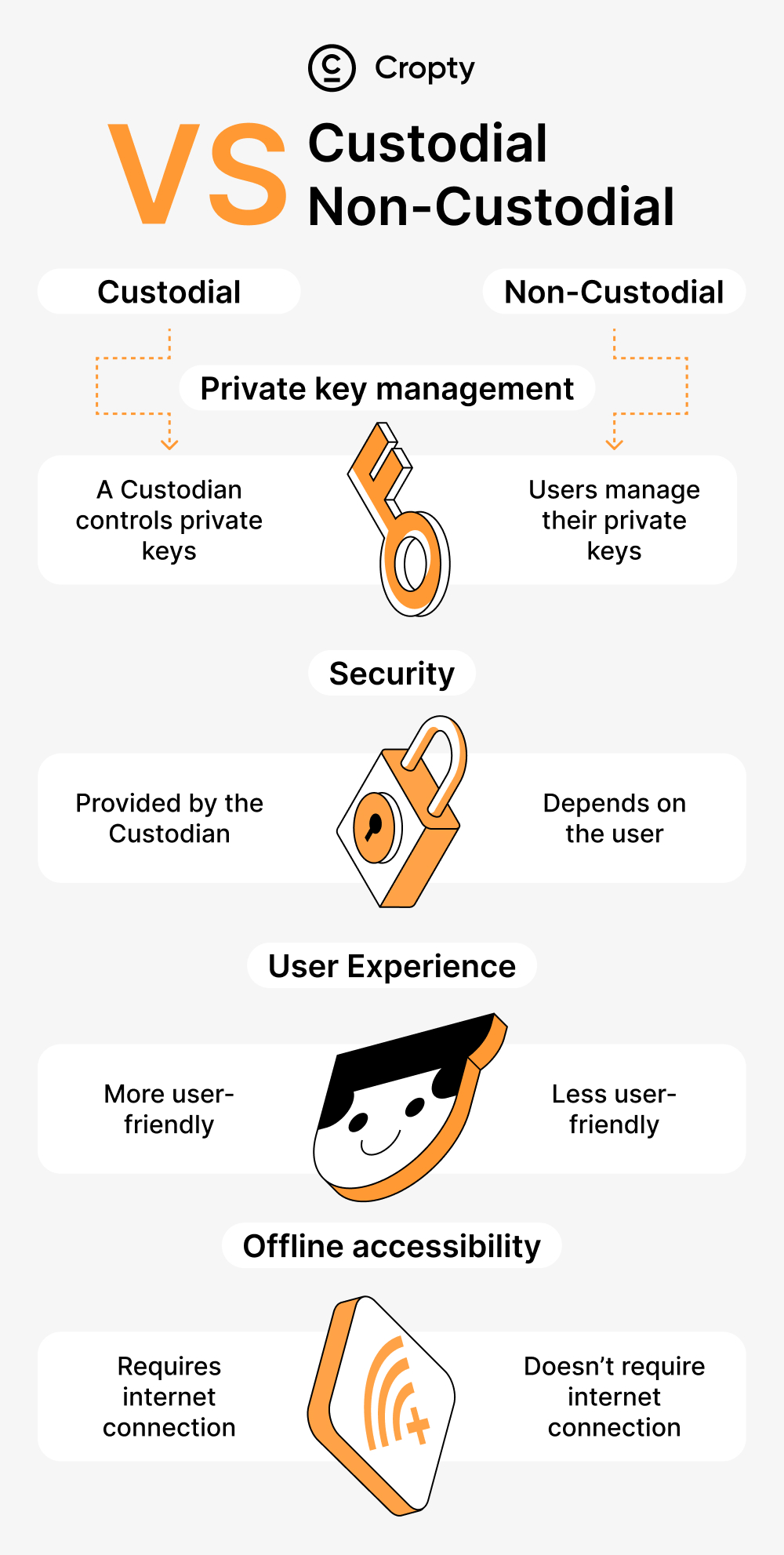
When comparing custodial and non-custodial wallets, it’s crucial to examine several factors that set them apart.
The first factor is the custodian of the private key. In custodial wallets, the private key is managed by a third party, while non-custodial wallets give users full control over their private keys. This distinction allows non-custodial wallets to be referred to as self-custodial wallets, empowering users to be their own bank.
Another factor to consider is the transaction type. Non-custodial wallets reflect transactions on the blockchain in real-time, whereas custodial wallets do not provide the same level of transparency.
Security is also a differentiating factor. Custodial online wallets store sensitive user data in hot and cold storage, making them vulnerable to hacking. On the other hand, non-custodial wallets keep all the information with users, reducing the risk of data theft unless the user willingly shares their details or their device is stolen.
When it comes to backup and recovery possibilities, custodial wallets have an advantage. Since they hold the private key, users can regain access by contacting the third-party custodian. Non-custodial wallets, on the other hand, require users to take full responsibility for their keys and offer limited options for recovery if they are lost.
Offline accessibility is another consideration. Custodial wallets often require internet connectivity and a login process to access funds and associated information. In contrast, non-custodial wallets do not have such requirements, allowing users to enjoy real-time blockchain services without the need for constant internet access.
Overall, custodial wallets emerge as a preferable option for users seeking added security, ease of backup and recovery, and a trusted custodian to rely on. Non-custodial wallets, while providing greater user control, require users to assume more responsibility for their own security and may be better suited for those with a deeper understanding of cryptocurrency storage and management.
| Custodial Wallets | Non-custodial Wallets |
| Cropty Wallet | Trust Wallet |
| Binance | MetaMask Wallet |
| Bybit Wallet | Ledger Wallet |
Custodial Wallet Examples
Cropty Wallet
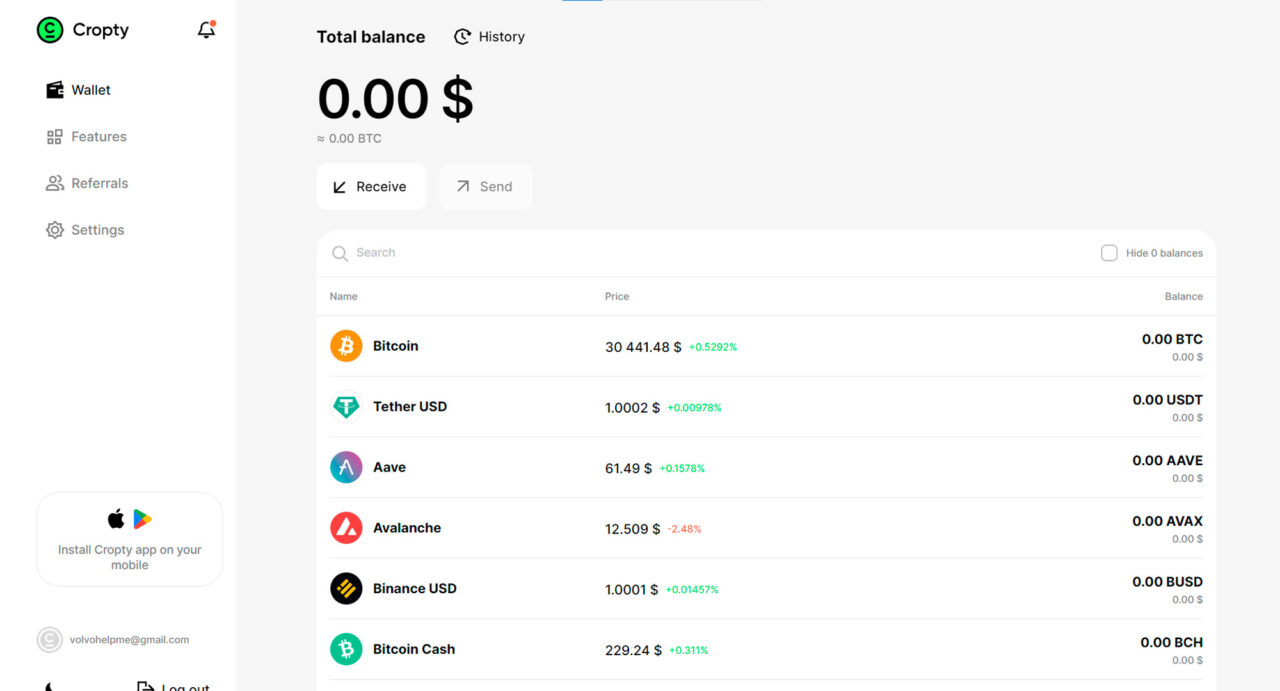
Introducing Cropty Wallet, a new and innovative player in the crypto space. This wallet is gaining attention for its impressive features and functionalities.
Cropty is an exciting new crypto wallet that simplifies storing, sending, and receiving cryptocurrencies. It supports both EVM and non-EVM chains and offers wallet apps for iOS, Android, and browsers. While it is a custodial wallet, which may not be suitable for everyone, it relieves the burden of managing private keys.
Key Features of Cropty Wallet:
- Hassle-Free Login: Cropty offers convenient two-factor authentication options such as email, SMS, phone number, or Telegram, ensuring a seamless login experience.
- Robust Encryption: Cropty employs end-to-end encryption, guaranteeing the highest level of data security. Only you can access your information, providing peace of mind.
- Security Alerts: Stay informed and proactive with Cropty’s security alerts. Receive notifications via email, phone, or Telegram if any suspicious activities occur, empowering you to stay ahead of potential threats.
- Private Key Protection: Cropty has designed its platform to safeguard your private keys and crypto assets, minimizing the risk of loss or theft.
- Access Monitoring: In the event of unusual activities, Cropty takes proactive measures. Withdrawals and transfers are paused for 24 hours, offering an extra layer of protection for your funds.
If you’re seeking a crypto wallet with a focus on security and notable features, Cropty is definitely worth exploring. It facilitates earning, lending, and transferring of crypto, all while maintaining user privacy and protecting personal information. Give Cropty a try to see if it aligns with your crypto needs.
Binance
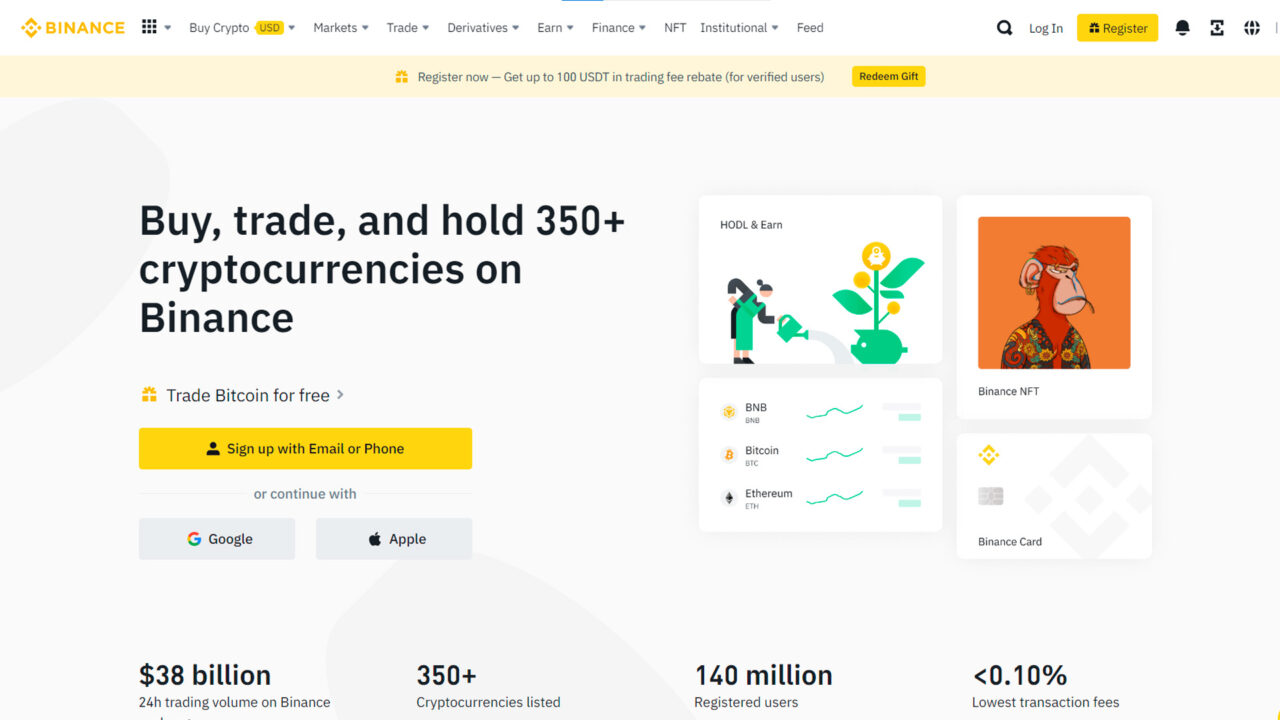
Binance Wallet offers a user-friendly trading experience with competitive fees. It supports advanced features like margin trading and futures trading, catering to experienced traders.
A standout feature of Binance is its native cryptocurrency, Binance Coin (BNB). BNB serves as a utility token within the platform, allowing users to pay trading fees and access various services.
Alongside its trading services, Binance provides a secure custodial wallet for users to protect their cryptocurrencies. This wallet supports a wide range of digital assets and implements robust security measures to ensure the safety of users’ funds.
One notable feature of the Binance wallet is the seamless transfer of cryptocurrencies from the exchange to the wallet, providing a secure storage solution for users’ assets.
Key Features of Binance Wallet:
- Extensive selection of cryptocurrencies available for trading.
- Low trading fees, starting at 0.1%.
- High liquidity, enabling easy buying and selling of assets.
- User-friendly interface designed for beginners.
- Advanced trading features, including margin and futures trading.
- Binance Coin (BNB) can be used for fee payments, offering discounts and additional benefits.
- Enhanced security measures, such as two-factor authentication, ensuring account and fund protection.
Whether you’re a novice or an experienced trader, Binance Wallet offers a comprehensive range of features and a diverse selection of cryptocurrencies to cater to your trading requirements.
Bybit Wallet

Bybit Wallet is a well-known cryptocurrency exchange and wallet that enables users to trade a variety of cryptocurrencies, including Bitcoin, Ethereum, and Litecoin. With its user-friendly interface, Bybit ensures a seamless trading experience, particularly suitable for beginners entering the world of cryptocurrency trading. The platform’s intuitive design makes it easy for users to navigate, providing a hassle-free trading environment.
For users seeking convenience and flexibility, Bybit offers a mobile app, that enables them to trade and manage their cryptocurrencies on the go. This mobile app empowers users to stay connected and actively participate in the crypto market from anywhere, anytime. In addition to trading services, Bybit also provides a secure custodial wallet. Users can confidently access their wallets and engage in trading activities on the Bybit platform, knowing that their assets are well-protected.
Key Features of Bybit Wallet:
- Advanced trading tools to enhance trading strategies and optimize outcomes.
- High security measures are implemented to safeguard user funds and ensure the protection of assets.
- Impressive liquidity and volume, ensuring a liquid market and smooth execution of trades.
- Leverage the trading capability of up to 100x, providing opportunities for amplified returns (subject to risk considerations).
- User-friendly interface, making it easy for traders to navigate and execute transactions efficiently.
- Dedicated customer support is available 24/7, providing prompt assistance and resolving queries in a timely manner.
Bybit wallet stands as a reliable option for users seeking a comprehensive trading experience, with advanced tools, strong security measures, high liquidity, and user-friendly interfaces. Their custodial wallet further enhances user confidence, making Bybit a platform of choice for traders.
Non-Custodial Wallet Examples
Trust Wallet
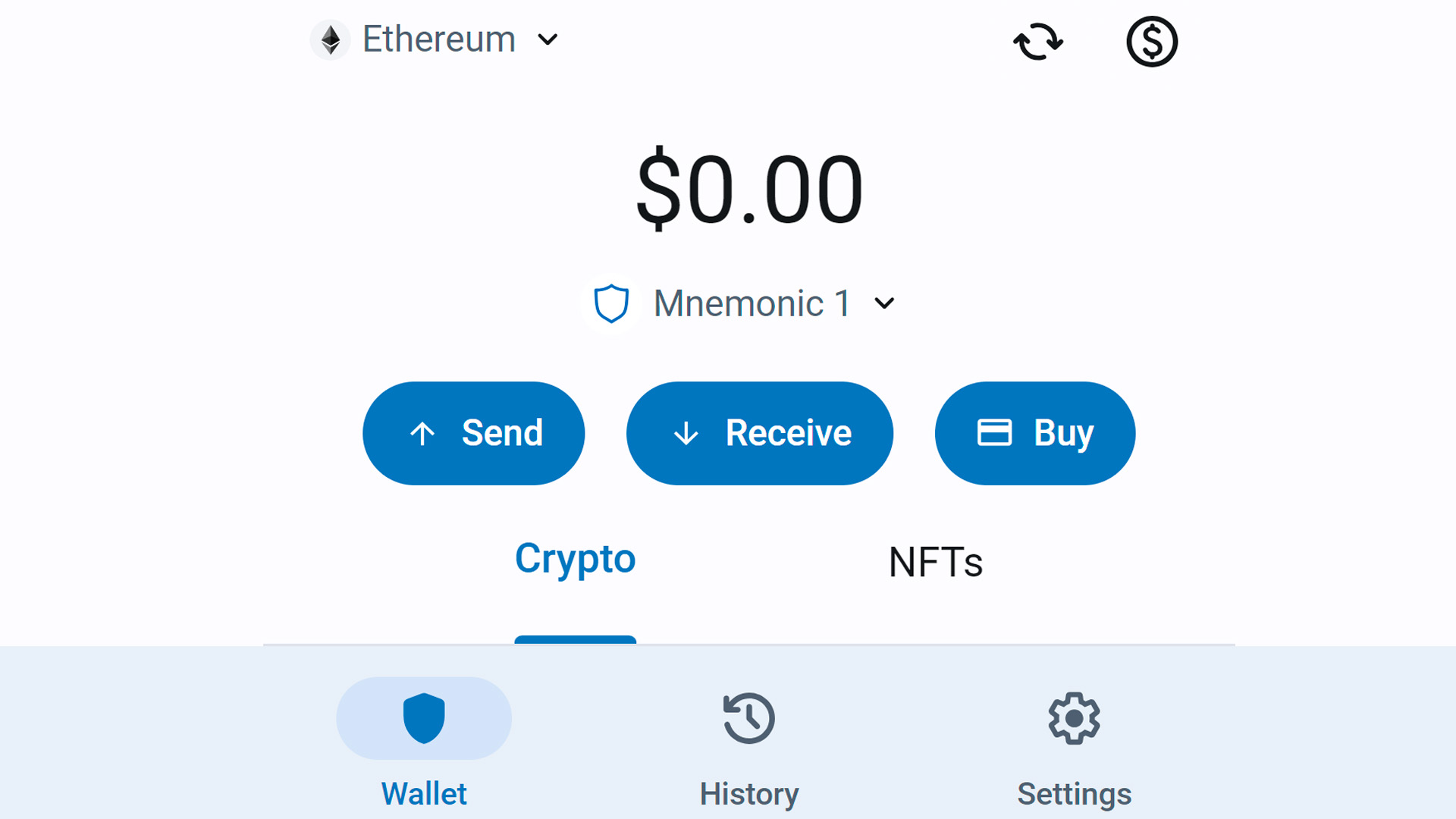
Trust Wallet is a secure and beginner-friendly mobile wallet that provides users with a decentralized and open-source solution for managing their cryptocurrencies. With support for over 4.5 million assets, Trust Wallet offers a diverse range of cryptocurrencies and allows users to stake their holdings to earn interest.
Trust Wallet combines a user-friendly design, extensive coin support, advanced security measures, built-in dApp browsing, staking capabilities, regular updates, simple backup and recovery, and reliable customer support to provide a comprehensive and secure wallet solution for cryptocurrency users.
Key Features of Trust Wallet:
- Easy-to-use Interface: Trust Wallet is designed with a user-friendly interface, making it simple for users to navigate and manage their assets effortlessly.
- Wide Coin and Token Support: The wallet supports various coins and tokens, including popular cryptocurrencies like Bitcoin, Ethereum, and Litecoin, providing users with flexibility in managing their diverse portfolios.
- Advanced Security Measures: Trust Wallet prioritizes security and implements advanced features such as seed phrases, PIN codes, and biometric authentication to ensure the safety of users’ assets.
- Built-in dApp Browser: The wallet incorporates a built-in browser that enables users to directly access decentralized apps (dApps) on the Ethereum network, facilitating seamless interaction with the decentralized web.
- Regular Updates: The Trust Wallet team actively provides updates to enhance the wallet’s functionality, introduce new features, and ensure compatibility with the latest blockchain advancements.
- Simple Backup and Recovery: Trust Wallet simplifies the process of backing up and recovering the wallet by utilizing a 12-word seed phrase. Users can securely store this phrase and easily restore their wallet if needed.
Related: Best DeFi wallets (June 2023 Update)
MetaMask Wallet
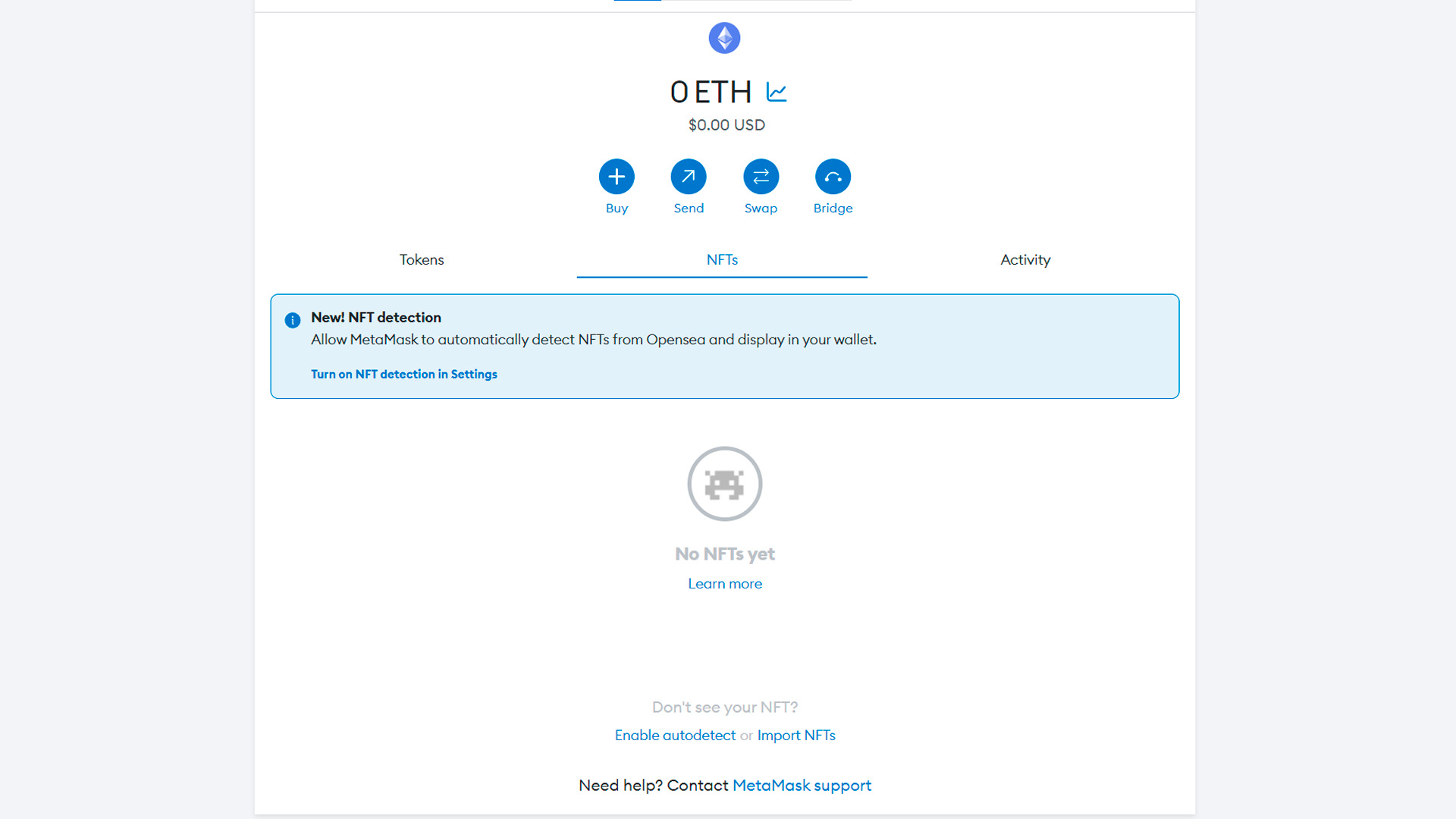
MetaMask wallet, introduced by Consensys in 2016, provides users with seamless access to decentralized applications (dApps) such as online gaming, decentralized exchanges, and decentralized finance opportunities. It serves as a digital wallet for storing cryptocurrencies based on the Ethereum blockchain, boasting a substantial user base of over 10 million active users in the crypto community. MetaMask allows users to store Ethereum and ERC-20 tokens, leveraging the power of the ETH blockchain network to interact with various decentralized apps.
MetaMask Wallet empowers users with advanced features to transact Ethereum seamlessly, with adjustable gas fees, convenient token swaps, and a commitment to privacy. It serves as a versatile gateway to the Ethereum ecosystem, allowing users to engage with various decentralized applications and networks, amplifying their experience in the decentralized finance space.
Key Features of MetaMask Wallet:
- Flexible Gas Fees: MetaMask Wallet stands out by offering users the ability to adjust transaction fees according to their specific requirements. Users have the flexibility to set gas fees upfront, tailoring their transactions to suit their needs.
- Swap Tokens From Any Device: With MetaMask, users can effortlessly swap tokens at any time and from any device. Whether using the desktop wallet or the mobile app, this feature aggregates data from decentralized exchanges (DEXs), DEX aggregators, and MetaMask to ensure users secure the best prices and lowest gas fees across different networks.
- Privacy-focused Design: MetaMask Wallet prioritizes user privacy, enabling seamless storage, swapping, and access to tokens without concerns about exchanges or decentralized apps accessing sensitive information beyond the user’s agreement.
- Supported Networks: While MetaMask primarily facilitates transactions on the Ethereum network, it also allows users to interact with other networks, including Goerlich Test Network, Rinkeby Test Network, Kovan Test Network, and Ropsten Test Network.
- EIP-1559: MetaMask embraces the innovation of EIP-1559, which revolutionizes Ethereum transactions by replacing first-price auctions with a base fee mechanism. Users no longer need to calculate gas amounts, as the base fee is included in the resulting block. They can optionally add a priority fee or tip to expedite their transactions.
Ledger Wallet
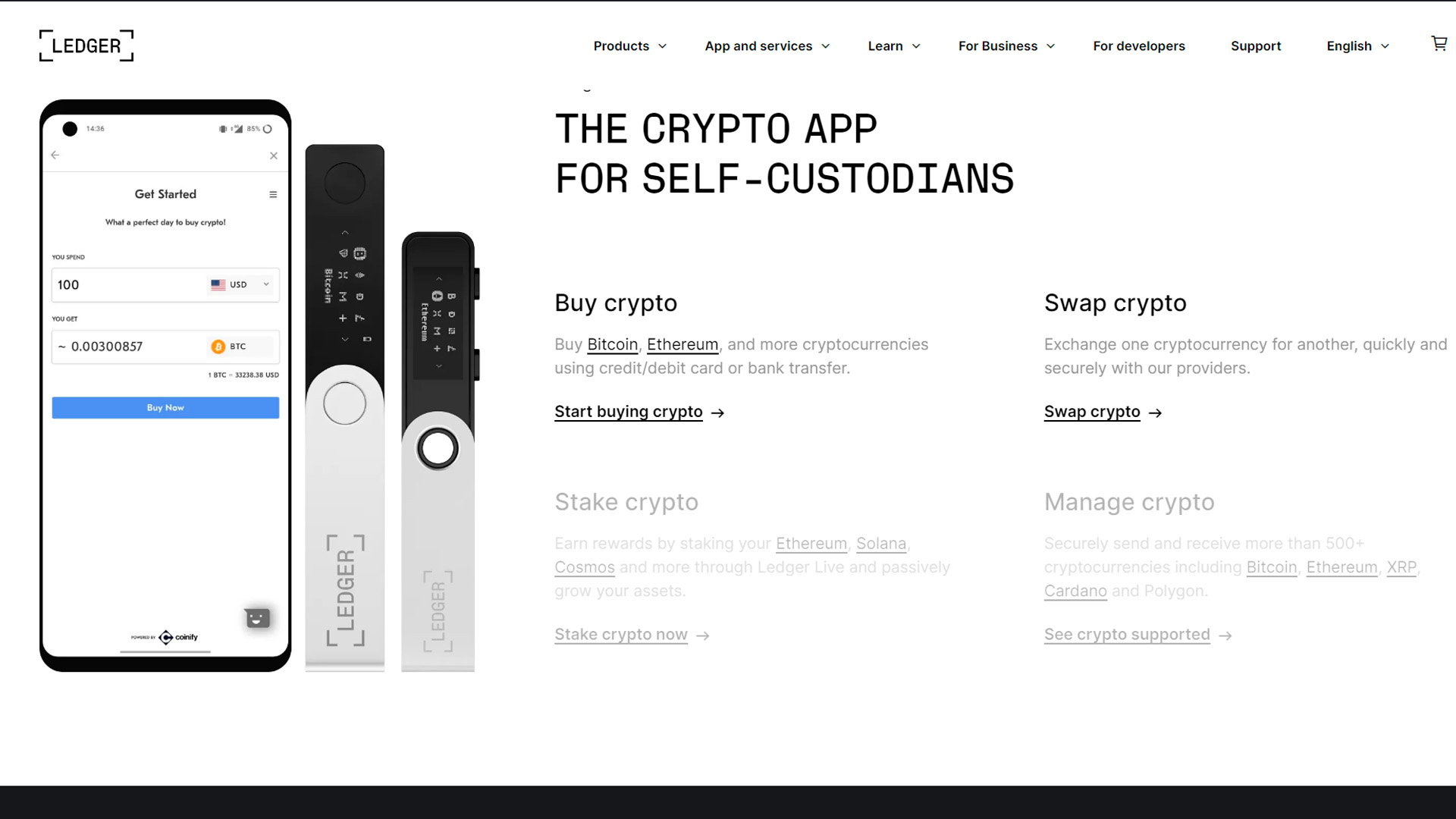
Ledger Wallet, established in 2014 by the eponymous French company, prioritizes offline storage of private keys as a means to ensure robust security for users’ cryptocurrency assets.
Ledger wallet combines offline storage, extensive cryptocurrency support, stringent security measures, and affordability to provide users with a reliable and secure solution for managing their digital assets.
Key Features of Ledger Wallet:
- Extensive Cryptocurrency Support: Ledger Nano S is highly compatible, supporting over 100 cryptocurrencies and more than 1,000 tokens, including widely used stablecoins like Tether (USDT).
- Advanced Security Measures: Ledger employs a Secure Element (SE) chip to safeguard private keys, bolstered by its dedicated operating system called Blockchain Open Ledger Operating System (BOLOS). Regular audits conducted by authorities, such as ANSSI, validate the safety of Ledger devices.
- Data Breach Mitigation: In 2020, Ledger experienced a customer data breach, exposing customer names. However, the incident did not compromise wallet information, underscoring the wallet’s focus on protecting user assets.
- Cost-Effective Solution: Compared to other cold wallets, Ledger Nano S offers affordability with a price tag of $59 (excluding shipping). This investment in security surpasses the safety provided by free hot wallets, making Ledger a preferred choice for investors seeking peace of mind.
What to choose: Custodial or Non-custodial
Choosing between custodial and non-custodial wallets depends on your level of experience and preferences in managing your cryptocurrency investments. Custodial wallets, often provided by third-party custodians like exchanges, can offer convenience for beginners entering the crypto space. In custodial wallets, the private keys are held by the custodian, simplifying fund management tasks such as sending and receiving coins. This accessibility is particularly advantageous if you have a reliable internet connection, as the risk of losing funds due to misplaced private keys is mitigated.
However, it’s crucial to note the downsides of custodial wallets. Since the custodian holds the private keys, there is a risk of potential loss if the custodian experiences issues or if coins go missing. Additionally, there’s a chance of not receiving coins in case of a fort. Despite these concerns, custodial wallets operate similarly to banks – your funds are still yours, albeit under the control of someone else.
On the other hand, non-custodial wallets, often referred to as “like wallets,” provide users with full control over their private keys. This level of control is ideal for experienced traders who prioritize having complete ownership and management of their funds. Non-custodial wallets fall under the broader categories of hot and cold wallets. Hot wallets require an internet connection, while cold wallets operate offline.
Each type of wallet, whether custodial or non-custodial, has its own set of pros and cons. Custodial wallets are user-friendly and suitable for beginners, while non-custodial wallets offer more control for experienced traders. Understanding the distinctions between hot and cold wallets further refines the choice based on specific needs and preferences.
In summary, custodial wallets offer accessibility and ease of use, making them suitable for beginners. Non-custodial wallets provide greater control and ownership of funds, catering to experienced traders. Whether you choose a custodial or non-custodial wallet, it’s essential to weigh the pros and cons based on your individual preferences and investment goals.



